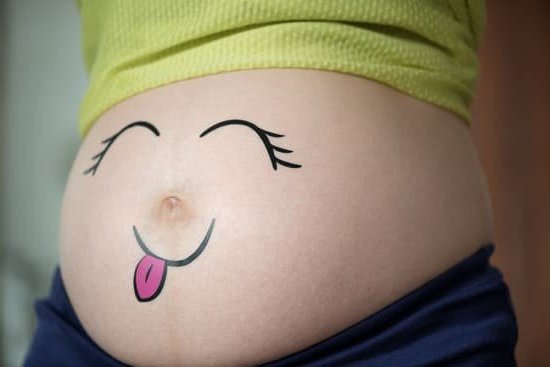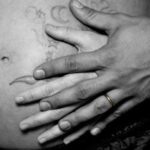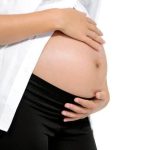Are you wondering, “Has anyone had diarrhea in early pregnancy?” If so, you’re not alone. Many women experience a range of symptoms during the early stages of pregnancy, and diarrhea is among them. Understanding these symptoms and their causes can help provide reassurance and guidance to expectant mothers as they navigate this new phase of life.
Early pregnancy brings about a host of physical changes as a result of hormonal fluctuations. These changes can lead to various symptoms, including nausea, fatigue, breast tenderness, and yes, even diarrhea. This article aims to shed light on the connection between diarrhea and early pregnancy, as well as provide insights into common causes and effective management strategies for expectant mothers.
As we delve into the topic of diarrhea in early pregnancy, it’s important to understand the underlying factors contributing to this symptom. Hormonal shifts play a significant role in impacting the gastrointestinal system during early pregnancy, which can lead to changes in bowel movements for some women. By exploring this connection, we aim to equip pregnant individuals with valuable information that can aid in their overall well-being and healthcare decision-making.
Understanding the Role of Hormones in Early Pregnancy
During early pregnancy, a woman’s body undergoes significant hormonal changes as it prepares to nurture and protect the growing fetus. The primary hormone responsible for these changes is human chorionic gonadotropin (hCG), which is produced by the placenta after implantation. This hormone plays a crucial role in maintaining the production of other key hormones like estrogen and progesterone, which are essential for supporting the pregnancy.
One of the lesser-known effects of these hormonal changes is their impact on the digestive system. It is not uncommon for women to experience gastrointestinal symptoms such as nausea, vomiting, constipation, and yes, diarrhea during early pregnancy. These symptoms can be attributed to the increased levels of hCG and progesterone, which can affect the muscles in the digestive tract and lead to changes in bowel movements.
In addition to hormonal fluctuations, stress and anxiety related to the pregnancy can also contribute to digestive issues like diarrhea. The combination of physical and emotional factors can result in gastrointestinal discomfort for many women during early pregnancy. Understanding these hormonal influences and their potential effects on digestion can help women better manage and navigate their symptoms during this crucial stage of pregnancy.
| Early Pregnancy Hormonal Changes | Gastrointestinal Symptoms |
|---|---|
| Increase in hCG levels | Nausea, vomiting, diarrhea |
| Rise in progesterone levels | Changes in bowel movements |
| Impact of stress and anxiety | Contribute to digestive discomfort |
The Connection Between Diarrhea and Early Pregnancy
During early pregnancy, many women experience a variety of symptoms as their bodies adjust to the hormonal changes and prepare for the growth of the fetus. One common symptom that some women may experience is diarrhea. This section will discuss the connection between diarrhea and early pregnancy, as well as the potential causes and management of this uncomfortable symptom.
Understanding the Link
The link between diarrhea and early pregnancy can be attributed to the surge in hormone levels, particularly progesterone. Progesterone has a relaxing effect on smooth muscles, including those in the digestive tract. This can lead to a decrease in the time it takes for food to move through the intestines, resulting in looser stools and potentially diarrhea. Additionally, heightened stress or anxiety about being pregnant can also contribute to gastrointestinal discomfort.
Potential Causes
In addition to hormonal changes, there are other potential causes of diarrhea in early pregnancy. These include dietary changes, food sensitivities or intolerances, gastrointestinal infections, and prenatal vitamins with high iron content. It is important for expectant mothers to be mindful of their diet and any new supplements they may be taking.
Management Strategies
For women experiencing diarrhea in early pregnancy, there are several management strategies that may provide relief. Staying hydrated is crucial during this time, so it is important to drink plenty of water. Eating small, frequent meals that are low in fat and high in fiber can also help regulate bowel movements. Additionally, avoiding trigger foods or substances such as caffeine and spicy foods may alleviate symptoms.
By understanding the connection between diarrhea and early pregnancy, women can feel more empowered to manage this uncomfortable symptom and seek necessary support if needed.
Common Causes of Diarrhea in Early Pregnancy
During the early stages of pregnancy, a woman’s body undergoes numerous changes as it prepares to nurture a new life. These changes are often accompanied by various symptoms, some of which may be uncomfortable or unfamiliar. One common symptom that many women experience is diarrhea. While it may not be discussed as frequently as other symptoms, diarrhea in early pregnancy is not uncommon and can be attributed to several factors.
One of the primary causes of diarrhea in early pregnancy is hormonal fluctuations. The surge in hormones, particularly progesterone, can have an effect on the digestive system, leading to more frequent bowel movements and looser stools. Additionally, the increase in hormone levels can also slow down the movement of food through the digestive tract, causing gastrointestinal discomfort and diarrhea.
Another common cause of diarrhea in early pregnancy is dietary changes and sensitivities. Pregnant women may find that certain foods that were once well-tolerated now result in gastrointestinal upset. Additionally, prenatal vitamins or supplements can also contribute to stomach upset and diarrhea for some women.
Stress and anxiety associated with early pregnancy can also play a role in causing diarrhea. It’s natural for expectant mothers to feel anxious or worried about their changing bodies and the health of their unborn baby. This emotional stress can impact the digestive system and lead to diarrhea.
It’s imperative for women experiencing persistent diarrhea in early pregnancy to monitor their symptoms closely and seek medical attention if necessary. While occasional episodes of diarrhea are typically harmless, chronic or severe cases could indicate an underlying issue that requires intervention from healthcare professionals.
Symptoms to Watch Out for in Early Pregnancy
When it comes to early pregnancy symptoms, the changes happening in a woman’s body can bring about various signs that can sometimes be confusing. One of the symptoms to watch out for in early pregnancy is diarrhea. While not everyone experiences this, it’s important to understand why it may occur and how to manage it.
Some common causes of diarrhea in early pregnancy include hormonal changes, dietary changes, and prenatal vitamins. The surge of hormones such as progesterone can affect the digestive system, leading to looser stools. In addition, the body may develop sensitivities to certain foods during pregnancy, which can also trigger diarrhea. Furthermore, prenatal vitamins containing iron or other ingredients may contribute to gastrointestinal discomfort.
To manage diarrhea and discomfort in early pregnancy, here are some tips:
- Stay hydrated: Drink plenty of water to prevent dehydration caused by diarrhea.
- Eat bland foods: Stick to easily digestible foods such as rice, bananas, toast, and applesauce.
- Avoid triggers: Identify and avoid foods that may be causing digestive upset.
- Talk to your healthcare provider: If you’re unsure about any symptoms or if they persist, consult your doctor for guidance.
It’s important for women to be aware of these symptoms and know when to seek medical attention if necessary. Taking care of one’s health and well-being during early pregnancy is crucial for both the mother and the developing baby.
When to Seek Medical Attention for Diarrhea in Early Pregnancy
While diarrhea is a common symptom in early pregnancy, there are instances when seeking medical attention is necessary for the health and safety of both the mother and the growing fetus. It’s important for pregnant women to be aware of when their diarrhea may require professional medical care.
Dehydration
One of the main reasons to seek medical attention for diarrhea in early pregnancy is dehydration. Diarrhea can cause a significant loss of fluids and electrolytes in the body, which can lead to dehydration. Dehydration during pregnancy can pose serious risks, including preterm labor and low amniotic fluid levels. If you are experiencing frequent bouts of diarrhea, accompanied by symptoms such as dizziness, rapid heartbeat, dark urine, or extreme thirst, it’s crucial to seek medical attention promptly.
Blood in Stool
Another red flag that necessitates medical intervention is the presence of blood in your stool. While hemorrhoids are a common occurrence during pregnancy and may cause bleeding in the stool, it’s essential to rule out other more serious causes such as infections or gastrointestinal issues. If you notice blood in your stool along with diarrhea, it’s imperative to consult with your healthcare provider.
Persisting Symptoms
If you have been experiencing diarrhea for an extended period despite trying home remedies and dietary changes, consulting with a healthcare professional is recommended. Persistent diarrhea could be a sign of an underlying condition such as food poisoning, viral or bacterial infection, or a digestive disorder. Your healthcare provider can help determine the cause of your ongoing symptoms and provide appropriate treatment.
Tips for Managing Diarrhea and Discomfort in Early Pregnancy
During early pregnancy, the body undergoes numerous changes, including hormonal fluctuations that can lead to various symptoms. Unfortunately, diarrhea is one of the common discomforts that some women experience during this time. While it can be unsettling and inconvenient, there are several ways to manage diarrhea and alleviate the discomfort it causes.
One of the most important aspects of managing diarrhea in early pregnancy is maintaining proper hydration. Dehydration can exacerbate symptoms and lead to other complications, so it’s crucial to drink plenty of fluids. Water, clear broths, and electrolyte-rich drinks can help replenish lost fluids and prevent dehydration. Additionally, avoiding beverages that can irritate the digestive system, such as caffeine and alcohol, can also be beneficial.
In addition to staying hydrated, keeping a close eye on your diet can also help manage diarrhea in early pregnancy. Opting for bland, easy-to-digest foods like bananas, rice, applesauce, and toast (BRAT diet) can help soothe the digestive system. It may also be helpful to avoid spicy or greasy foods that could exacerbate symptoms. Here are some tips for managing diarrhea and discomfort in early pregnancy:
- Stay hydrated by drinking water and electrolyte-rich fluids
- Follow a bland diet such as the BRAT diet (bananas, rice, applesauce, toast)
- Avoid irritants like caffeine and alcohol
- Consider over-the-counter remedies with physician approval
- Practice good hygiene to prevent bacterial infections
While these approaches may provide relief for minor cases of diarrhea in early pregnancy, it’s essential to consult with a healthcare provider if symptoms persist or worsen.
It is important to remember that everyone’s experience with early pregnancy symptoms including diarrhea can vary greatly from person to person. Seeking advice from medical professionals regarding any concerns is always advised before attempting any self-medication or home remedies.
Personal Experiences
Experiencing diarrhea in early pregnancy can be unsettling and confusing for many women. It is not uncommon for expecting mothers to wonder if anyone else has had a similar experience. The truth is that diarrhea can indeed be a symptom of early pregnancy, and it is more common than many people realize. In fact, hormonal changes and increased sensitivity in the gastrointestinal tract can lead to diarrhea in the early stages of pregnancy.
Many women have shared their personal experiences with experiencing diarrhea during early pregnancy. Some have described it as an unexpected and unpleasant symptom that caught them off guard. Others have reported feeling worried about the potential impact on their unborn baby’s health. However, it’s important to note that in most cases, diarrhea in early pregnancy does not pose a serious threat to the mother or the baby.
It can be reassuring for women to hear real stories from others who have gone through similar experiences. This can help them feel less alone and more prepared to handle this particular symptom. Knowing that other women have successfully navigated diarrhea in early pregnancy can provide a sense of comfort and empowerment during what can be a challenging time.
| Real Stories | Experiences |
|---|---|
| Diarrhea caught me off guard | Unpleasant symptom |
| Worries about baby’s health | Reassuring stories from others |
| Sense of comfort and empowerment | Challenging time |
Conclusion
In conclusion, it is important for women to be aware of the various symptoms that can occur during early pregnancy, including diarrhea. Understanding the role of hormones in early pregnancy and being knowledgeable about the common causes of diarrhea can help women feel more empowered as they navigate this stage of their life.
By recognizing the symptoms to watch out for and knowing when to seek medical attention, women can take control of their health and well-being during this crucial time.
Managing diarrhea and the discomfort it brings during early pregnancy is also essential. By following tips such as staying hydrated, eating a balanced diet, and avoiding trigger foods, women can alleviate some of the discomfort associated with diarrhea. Seeking support from healthcare professionals and fellow mothers who have experienced similar symptoms can also provide reassurance and valuable guidance.
Ultimately, sharing personal experiences from other women who have had diarrhea in early pregnancy can play a significant role in educating and empowering others. These real stories offer insight into what others have gone through, providing comfort through solidarity while debunking any misconceptions or fears surrounding this symptom. By continuing to share knowledge and experiences, we can empower and educate women about early pregnancy symptoms, allowing them to navigate this transformative time with confidence and understanding.
Frequently Asked Questions
How Common Is Diarrhea in Early Pregnancy?
Diarrhea in early pregnancy is not uncommon, but it is also not considered a typical symptom. Some women may experience changes in their bowel movements due to hormonal fluctuations, increased stress, or dietary changes.
Can Implantation Give You Diarrhea?
Some women report experiencing diarrhea during implantation, which occurs around 6-12 days after conception. However, not all women will experience this symptom. It is believed to be caused by hormonal changes and the body’s adjustment to the embryo implanting in the uterus.
Is It Normal to Have Loose Stools While Pregnant?
It is normal for pregnant women to have loose stools at times due to hormonal changes, prenatal vitamins, and increased water intake. Additionally, as the pregnancy progresses, the growing uterus can put pressure on the intestines and contribute to this symptom.

Welcome to my fertility blog. This is a space where I will be sharing my experiences as I navigate through the world of fertility treatments, as well as provide information and resources about fertility and pregnancy.





